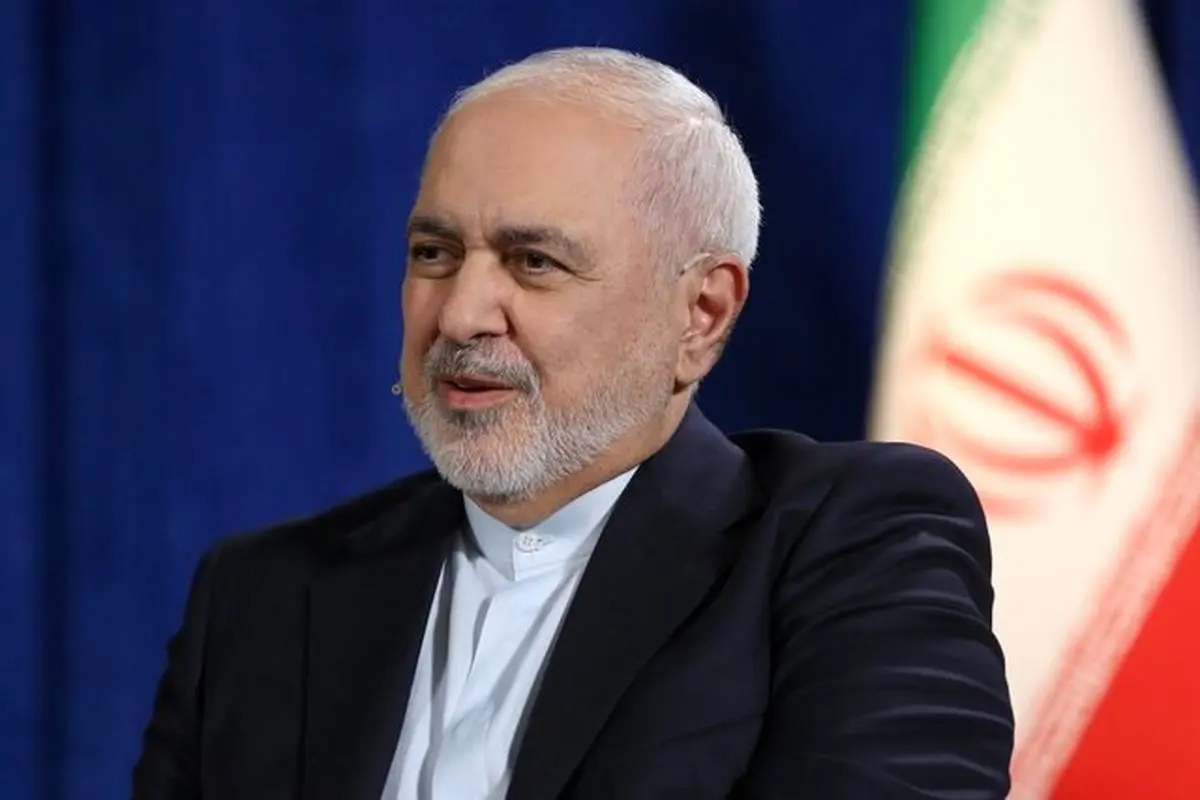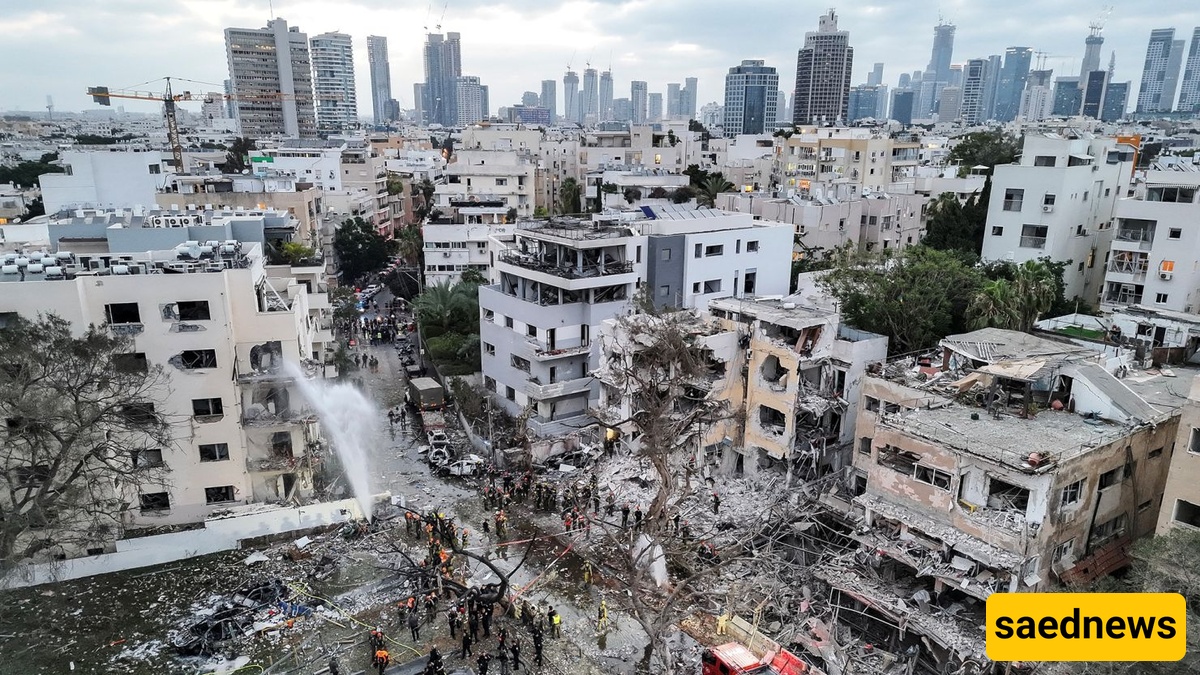SAEDNEWS: Former Iranian Foreign Minister Mohammad Javad Zarif warns that West Asia is at a perilous turning point, urging a bold diplomatic shift from a paradigm of threats to one of opportunities. He emphasizes Iran’s resilience, its regional ties, and the necessity of inclusive cooperation to avoid endless wars and build a shared future.

In a note, Zarif wrote:
“West Asia is at a dangerous crossroads. The tragedies unfolding in Gaza — the recent aggressions against Iran repelled by its people and armed forces, and the ongoing destabilization of Syria — clearly show that for Benjamin Netanyahu, Israel’s prime minister, and his global supporters, the only so-called ‘existential’ threat is, in fact, peace and stability. This combination — Israel’s internal apartheid and its permanent regional conflict — threatens the foundations of regional and global order. While strong defense is necessary, a lasting solution requires bold diplomatic initiative: a historic shift for Iran and the region from a deeply rooted paradigm of threat to a paradigm of empowering opportunities; including expanding relations with neighbors and the Global South, creating new regional partnerships among West Asian Muslim states, and resuming dialogue with Europe and the United States.”

According to Saed News citing ISNA, he added:
“For too long, the region’s countries have been trapped in cycles of conflict and missed opportunities. Building a different future requires vision, courage, and conscious decision to break free from historical determinism. For Iran, this change begins internally and extends to its surroundings and neighbors. Iran has proven it is not an easy prey and can defend itself against two nuclear aggressors, thus possessing the ability to make this vital transition from a threat-centered approach to one focused on seizing opportunities. This is not only possible but profoundly in the interest of Iran, the region, and the global community. Achieving it requires strong domestic determination and freedom from foreign interference.”
Zarif continued:
“Iran’s greatest capacity lies in its people. Thousands of years of history attest to their extraordinary resilience. Invaders may have occupied Iran’s territory, but they never succeeded in imposing their values on its people. This resilience is the decisive factor that has confounded seemingly superior enemies — from Iraq’s invasion in 1980 (backed by global powers) to the recent attempts by Netanyahu and former U.S. President Donald Trump. It is also the reason why four decades of maximum pressure and crippling sanctions have failed to achieve their goals.”
The former foreign minister added:
“The second vital pillar of Iran’s capacity is its neighborhood. With borders to 15 countries, Iran stands at a unique crossroads of Eurasia. More importantly, the region enjoys deep and unbreakable historical and cultural bonds woven over centuries by Iranian poets, mystics, philosophers, and scholars. These bonds have survived empires, invasions, and upheavals. Yet, genuine regional cooperation has remained elusive. In my decades as an Iranian diplomat, I have participated in initiatives that were consistently undermined by the paradigm of suspicion and threat.”
He continued:
“But Israel’s recent escalations have created new awareness of shared vulnerability in the region. Now there is a vital opportunity. Iran, together with Bahrain, Egypt, Iraq, Jordan, Kuwait, Oman, Qatar, Saudi Arabia, Syria, Turkey, the UAE, and Yemen — and potentially extending to Pakistan, Central Asia, and the Caucasus — must seize this moment. Under the umbrella of the United Nations, we can forge a new accord based on a strategic pivot from division to synergy. Shared energy corridors, robust non-proliferation and nuclear cooperation frameworks, economic partnerships, and cultural unity can be engines of collective prosperity.”
Zarif wrote:
“Through this paradigm of opportunities, Iran — and even Russia and Turkey — can view the recent U.S.-brokered agreement between Azerbaijan and Armenia not as a threat but as an opportunity: a chance to revive the earlier proposal for transit cooperation in the Caucasus among Iran, Russia, and Turkey alongside Armenia, Azerbaijan, and Georgia. This new agreement provides a global context that makes our 2019 regional initiative more practical and sustainable. It will also open unique investment opportunities for the private sector in the United States and other countries.”
The former Iranian official further stated:
“The third pillar, global diplomacy, may be the most challenging for Iran given frustrations from past experiences. Yet I firmly believe that the benefit of Iran and the global community lies in moving beyond those experiences to shape a different future. For decades, Iran has contributed significantly to global stability. As a founding member of the United Nations, it has put forward historic initiatives: the 1974 proposal for a Middle East Nuclear-Weapon-Free Zone, the 1997 ‘Dialogue of Civilizations,’ and the 2015 JCPOA. Unfortunately, major world powers have consistently undermined these efforts.”
He stressed:
“The story of the JCPOA is a prime example of unfulfilled promises of diplomacy. Concluded in 2015 and hailed worldwide as a diplomatic triumph, it was severely damaged three years later when Trump decided to withdraw, deeply harming trust in diplomacy in Iran. Beyond the crushing sanctions, Europe’s recent activation of the JCPOA dispute resolution mechanism, coinciding with Israeli attacks on Iranian facilities, is profoundly hypocritical. Europe systematically failed for seven years to uphold its commitments under the JCPOA and the UN Security Council. The core bargain — economic normalization in exchange for verified nuclear compliance — collapsed with the U.S. withdrawal, and Europe proved either unable or unwilling to implement even the most basic economic mechanisms such as INSTEX.”
Zarif stated:
“In response to U.S. and European non-compliance, Iran legally triggered JCPOA remedial measures from 2017 to 2021. Instead of supporting diplomacy, the European trio backed Israeli military attacks against Iran in June, with German Chancellor Friedrich Merz even declaring that Israel was doing the West’s ‘dirty work.’ Europe’s endorsement of war, followed by resorting to the JCPOA dispute mechanism — to achieve the same goals that war failed to secure — has further eroded Iran’s respect for diplomacy. Given this heavy historical burden, persuading the Iranian people and government to believe in diplomacy’s efficacy will be difficult. But the alternative path — endless wars — will inevitably lead to fragmentation, widespread extremism, and chaos engulfing West Asia and beyond, risking dragging the U.S. and the West into a historic quagmire.”
He concluded:
“We cannot ignore the past, nor should we stop learning from it. But we must not allow past failures to imprison us; otherwise, we condemn ourselves to endless repetition of disasters. Warmongers profit from shutting every window for diplomacy. We must deny them that chance, so they cannot cement the destructive paradigm of threats and extinguish hope. We stand at a crossroads. The choice for Iran, the region, and global powers is clear: either continue the disastrous past, or have the courage to build a shared future. The time for paradigm change is now.”

